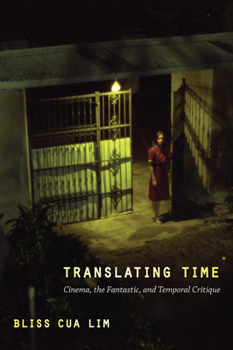Translating Time: Cinema, the Fantastic, and Temporal Critique
(Part of the a John Hope Franklin Center Book Series)
Under modernity, time is regarded as linear and measurable by clocks and calendars. Despite the historicity of clock-time itself, the modern concept of time is considered universal and culturally neutral. What Walter Benjamin called "homogeneous, empty time" founds the modern notions of progress and a uniform global present in which the past and other forms of time consciousness are seen as superseded. In Translating Time, Bliss Cua Lim...
Format:Paperback
Language:English
ISBN:0822345102
ISBN13:9780822345107
Release Date:September 2009
Publisher:Duke University Press
Length:360 Pages
Weight:1.31 lbs.
Dimensions:0.9" x 6.5" x 9.4"
Customer Reviews
0 rating





